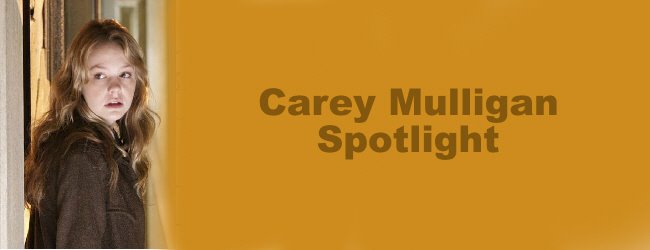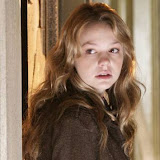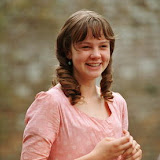Sorry for taking over 10 months to update this page but here is all the news relating the Carey over this time
Saturday, 10 November 2007
If you can remember [from living.scotsman.com]
My Boy Jack Sunday, ITV, 9pm Forgotten Heroes: The Not Dead Monday, Channel 4, 10pm Sold Thursday, ITV, 9pm
EVERY NEW GENERATION HAS ITS wars but there's something about the lost generation of 1914-18 which seems to resurface again and again as the ultimate symbol of the horror of military conflict. By all logic of selective human memory and the incredible changes in how wars have been fought since, it shouldn't still mean as much as it does - it's a remarkable tribute, in a shallow world, to the fierce determination of its survivors that we never forget.
And those iconic images of doomed youth swarming hopelessly over the top of the trenches keep recurring: in the 1960s, there was Oh! What a Lovely War; in the 1970s, the TV adaptation of Testament of Youth; in the 1980s, the final moments of Blackadder Goes Forth; in the 1990s, the novel Birdsong and now, perhaps, My Boy Jack.
The war scenes themselves are obviously shot on a small budget, though they do evoke the terror of the moments before an offensive. But really the power of this moving drama is in its portrayal of the home front, where families watch and wait. Those waiting for soldier Jack are not just any family but Rudyard Kipling's: hugely successful writer, friend of the king, jovial storyteller adored by children - and warmonger, whipping up national fervour to fight Germany and send Britain's boys off to the front.
Unlike today's warmongers, he put his son where his mouth was, pulling strings to get 17-year-old Jack into the army despite the boy's desperately poor eyesight. There are no happy First World War stories, so it's no spoiler to say this is something that Kipling comes to regret horribly.
I haven't mentioned so far what will be the biggest draw of My Boy Jack for most - that Daniel Radcliffe plays the son in his first TV role since appearing in the highest grossing movie series of all time. It's tempting to bill it as Harry Potter and the Trenches of Death (especially as Jack Kipling wears little round glasses), but unfair: Radcliffe's involvement may have helped to get the film a primetime slot, but he gives an excellent performance as a young man struggling in his father's shadow until, ironically, being sent to command troops in France. Radcliffe's many young fans may freak out at the sight of him smoking, drinking and wearing a dodgy moustache, but it may also bring them to an understanding of the First World War in a way school lessons never could.
It is, though, really David Haig's show. Having written and starred in the original play, then adapted it for TV, he is so steeped in the role that he is note-perfect as Kipling, by turns kind, blind, gung-ho and idealistic. Kim Cattrall as his elegant American wife (also slipping off her usual Sexpot and the City image) and rising star Carey Mulligan as his cynical, overlooked daughter are very good too.
But it's easy to get sentimental about the gallant men of a long-ago war: you can feel both sorry and superior about how they rushed off to volunteer, thinking they'd be back by Christmas having saved the jolly old Empire. It might be harder to empathise with the more recent veterans of conflicts we might disapprove of, or haven't been able to fit into a neat historical narrative. Poet Simon Armitage marks this Armistice Week with an attempt to give voice to those less familiar war stories.
While the Great War poems are about those who perished, Armitage focuses on The Not Dead who didn't return as they left. Damaged, traumatised men, trying to forget what they saw, what they did, are harder to glorify than tragic martyrs. The poems represent three (real) soldiers from three conflicts, from 78-year-old Cliff who fought in Malaya to 23-year-old Rob, recently back from Iraq. But their stories are similar and it's an affecting and troubling film.
Like Daniel Radcliffe, Kris Marshall is attempting to reinvent himself in Sold, as more than just a dopey teenage son (My Family and variations on the same role) or a dopey but techno-savvy TV advert stepdad. But he's less successful: this alleged comedy drama series about estate agents is neither funny nor believable. Marshall makes manic efforts as the amoral boss who'll commit any dirty tricks to get his commission, and makes frequent declarations like: "As from today, you're already tomorrow's yesterday's man".
But the script is flaccid and the dramatic elements just silly. The hero, Danny (Bryan Dick), is keener on solving his clients' personal problems than finding them a house, but nevertheless pulls big sales just by being so gosh-darned nice. The tone is wildly messy and the show is at least twice as long as it should be - although really I'd rather they hadn't bothered at all.
http://living.scotsman.com/tv.cfm?id=1783022007
EVERY NEW GENERATION HAS ITS wars but there's something about the lost generation of 1914-18 which seems to resurface again and again as the ultimate symbol of the horror of military conflict. By all logic of selective human memory and the incredible changes in how wars have been fought since, it shouldn't still mean as much as it does - it's a remarkable tribute, in a shallow world, to the fierce determination of its survivors that we never forget.
And those iconic images of doomed youth swarming hopelessly over the top of the trenches keep recurring: in the 1960s, there was Oh! What a Lovely War; in the 1970s, the TV adaptation of Testament of Youth; in the 1980s, the final moments of Blackadder Goes Forth; in the 1990s, the novel Birdsong and now, perhaps, My Boy Jack.
The war scenes themselves are obviously shot on a small budget, though they do evoke the terror of the moments before an offensive. But really the power of this moving drama is in its portrayal of the home front, where families watch and wait. Those waiting for soldier Jack are not just any family but Rudyard Kipling's: hugely successful writer, friend of the king, jovial storyteller adored by children - and warmonger, whipping up national fervour to fight Germany and send Britain's boys off to the front.
Unlike today's warmongers, he put his son where his mouth was, pulling strings to get 17-year-old Jack into the army despite the boy's desperately poor eyesight. There are no happy First World War stories, so it's no spoiler to say this is something that Kipling comes to regret horribly.
I haven't mentioned so far what will be the biggest draw of My Boy Jack for most - that Daniel Radcliffe plays the son in his first TV role since appearing in the highest grossing movie series of all time. It's tempting to bill it as Harry Potter and the Trenches of Death (especially as Jack Kipling wears little round glasses), but unfair: Radcliffe's involvement may have helped to get the film a primetime slot, but he gives an excellent performance as a young man struggling in his father's shadow until, ironically, being sent to command troops in France. Radcliffe's many young fans may freak out at the sight of him smoking, drinking and wearing a dodgy moustache, but it may also bring them to an understanding of the First World War in a way school lessons never could.
It is, though, really David Haig's show. Having written and starred in the original play, then adapted it for TV, he is so steeped in the role that he is note-perfect as Kipling, by turns kind, blind, gung-ho and idealistic. Kim Cattrall as his elegant American wife (also slipping off her usual Sexpot and the City image) and rising star Carey Mulligan as his cynical, overlooked daughter are very good too.
But it's easy to get sentimental about the gallant men of a long-ago war: you can feel both sorry and superior about how they rushed off to volunteer, thinking they'd be back by Christmas having saved the jolly old Empire. It might be harder to empathise with the more recent veterans of conflicts we might disapprove of, or haven't been able to fit into a neat historical narrative. Poet Simon Armitage marks this Armistice Week with an attempt to give voice to those less familiar war stories.
While the Great War poems are about those who perished, Armitage focuses on The Not Dead who didn't return as they left. Damaged, traumatised men, trying to forget what they saw, what they did, are harder to glorify than tragic martyrs. The poems represent three (real) soldiers from three conflicts, from 78-year-old Cliff who fought in Malaya to 23-year-old Rob, recently back from Iraq. But their stories are similar and it's an affecting and troubling film.
Like Daniel Radcliffe, Kris Marshall is attempting to reinvent himself in Sold, as more than just a dopey teenage son (My Family and variations on the same role) or a dopey but techno-savvy TV advert stepdad. But he's less successful: this alleged comedy drama series about estate agents is neither funny nor believable. Marshall makes manic efforts as the amoral boss who'll commit any dirty tricks to get his commission, and makes frequent declarations like: "As from today, you're already tomorrow's yesterday's man".
But the script is flaccid and the dramatic elements just silly. The hero, Danny (Bryan Dick), is keener on solving his clients' personal problems than finding them a house, but nevertheless pulls big sales just by being so gosh-darned nice. The tone is wildly messy and the show is at least twice as long as it should be - although really I'd rather they hadn't bothered at all.
http://living.scotsman.com/tv.cfm?id=1783022007
Subscribe to:
Post Comments (Atom)



No comments:
Post a Comment